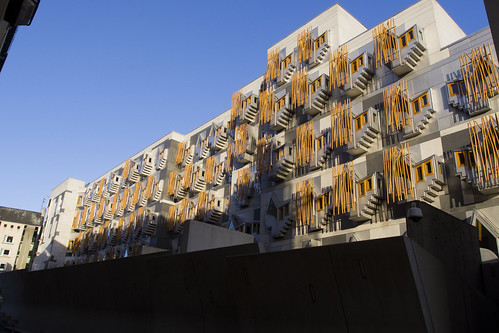Anthony Albanese tells Peter Dutton he will set up bipartisan committee to legislate on voice to parliament if yes vote succeeds
Parliament #Parliament

Anthony Albanese has sought to allay concerns about the design of the voice by telling Peter Dutton he will set up a bipartisan committee to legislate the advisory body, if the referendum is successful.
The prime minister revealed the move at the launch of the Uniting Church’s Yes23 campaign in Sydney on Sunday. At the same event the Liberal MP and voice advocate Julian Leeser urged Indigenous and non-Indigenous Australians to move from “being strangers from each other to being siblings of this great land”.
Leeser urged non-Indigenous Australians to “sit and listen” and arguing that “true empathy” is about accepting and embracing people despite differences.
In his speech, Albanese announced that if Australia votes yes he will move to set up a joint parliamentary committee “with co-chairs from Labor and the Coalition, to oversee the development of legislation for the voice advisory group”.
“I indicated this when I met with Peter Dutton and David Littleproud, way back in March and I’ve confirmed that in a discussion that I’ve had with Peter Dutton, just over this weekend,” he said.
At a doorstop after the event, Albanese said that Dutton had thanked him for the “courtesy” of advanced notice he would make the offer public, but referred questions about the substance of the proposal to the opposition leader, who he noted can “speak for himself”.
Dutton wrote to Albanese in January with 15 questions about the voice, and has repeatedly complained that Labor has deprived the public of detail, despite the fact parliament will legislate the voice in the event of a yes vote.
Despite the prime minister’s optimism, the Redbridge poll, published on Sunday, has continued the trend of polls showing the yes side on track for failure at the 14 October referendum, with 62% of respondents indicating they intend to vote no and 38% indicating a yes vote.
Leeser told the gathering in Ashfield that empathy “is more than having a feeling of connection with people ‘just like us’”.
“That is not an understanding or a reckoning with difference, it’s not true empathy. Empathy is bigger. It’s not about accepting and embracing people because we can see ourselves in them.”
Leeser, a Jewish Australian, spoke of the importance of Yom Kippur, the day of atonement, and the past week as a “time of reflection” for Jewish people.
“It is a sacred time. A time to right wrongs, and recommit to making the future better than the past. That’s what I’ve been thinking about.
“Australians aren’t a perfect people, no people or nation is. But Australians are a good-hearted people.
“As a people, and as individuals, we have been on a journey – of knowing, of understanding and of reconciliation. Of moving from being strangers from each other to being siblings of this great land.”
Leeser spoke about how “Shechina – the spark of the divine – is expressed through good deeds”, including the “wonderful Australian story” of the advertising entrepreneur John Singleton giving reverend Bill Crews winnings from his racing bets to start a soup kitchen.
skip past newsletter promotion
Sign up to Afternoon Update
Our Australian afternoon update breaks down the key stories of the day, telling you what’s happening and why it matters
Privacy Notice: Newsletters may contain info about charities, online ads, and content funded by outside parties. For more information see our Privacy Policy. We use Google reCaptcha to protect our website and the Google Privacy Policy and Terms of Service apply.
after newsletter promotion
What is a referendum and how can it change Australia? | News glossary
Leeser said that Crews and his church “offer more than a meal”.
“This church stops, sits and breaks bread with its guests – and this church – you do the most important thing, you sit and listen.
“In listening you affirm the God-given dignity of all who come to your table. Listening, respect, generosity, empathy – they are some of life’s truest values.
“In proposing a voice, Indigenous leaders have put a question to us: will you stop, sit and listen to us?”
Albanese said the referendum was about “lifting the nation up, taking out the request from Indigenous Australians, to just join with them on the journey towards reconciliation”.
Albanese said Australians “know that we need to do better” on the gap in Indigenous and non-Indigenous life outcomes, and are driven by an “instinct for fairness” to ask “what can we do?”.
“How can we help? For the first time in generations there’s a simple answer to that question. You can help by voting yes on October 14.”
In the home stretch to the referendum, political debate over the proposed Indigenous advisory has descended into rancorous accusations from opponents including the former prime minister Tony Abbott that the voice would “entrench separatism”.
The shadow minister for Indigenous Australians, Jacinta Nampijinpa Price, said earlier in September that there are no negative ongoing impacts of British colonisation on Indigenous Australians.
Advocates of the yes side, including the Indigenous leader Noel Pearson, have argued the “voice is about integration, not separatism”.
“Some of our people may recoil at the word ‘integration’, but integration is not assimilation,” Pearson said in May. “We keep our identity as First Peoples, but we do this in the midst of Australia. Not at its margins.”